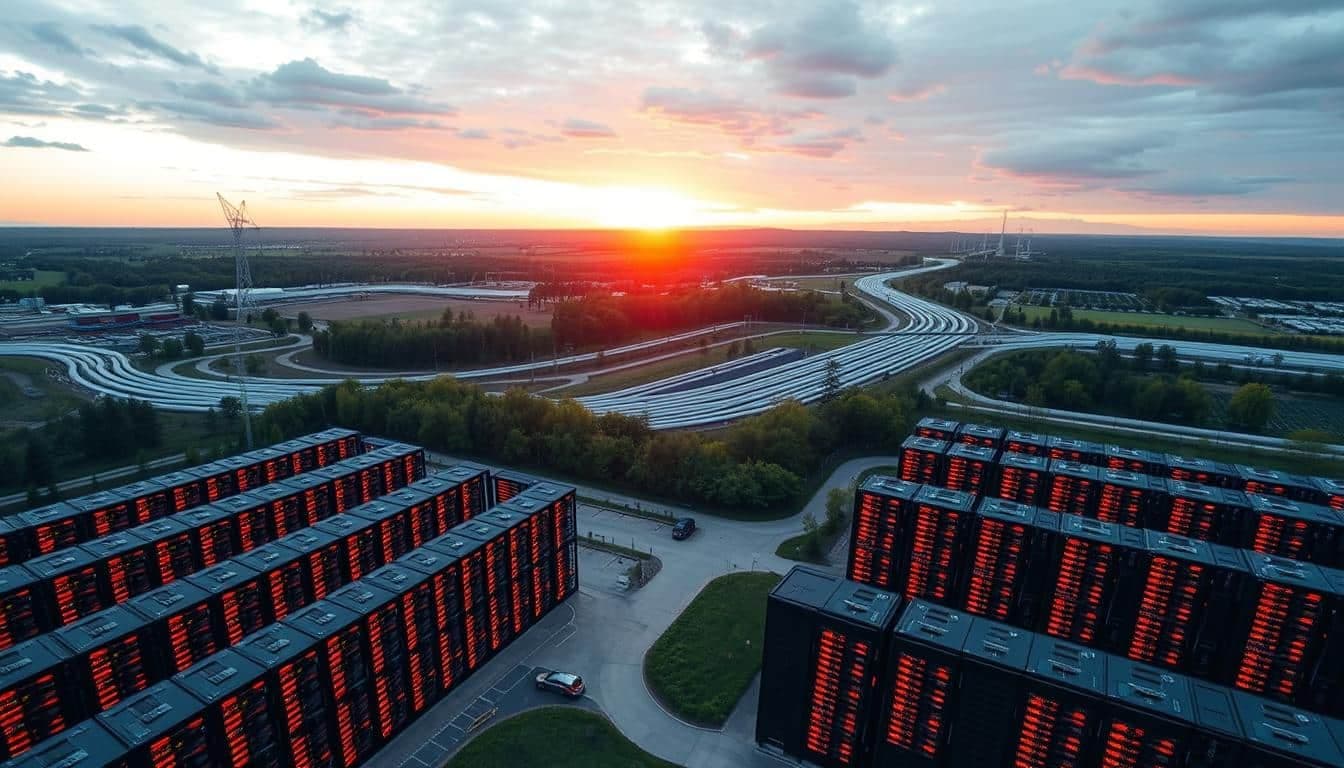AI Data Centers Poised to Drive 160% Power Demand Increase, Natural Gas Leads Supply

A recent report from the Wall Street Journal highlights natural gas as the "clear winner" for powering the rapidly expanding artificial intelligence (AI) data centers, which are projected to drive a significant surge in global electricity demand. This development comes as AI-optimized data centers are expected to more than quadruple their electricity demand by 2030, with Goldman Sachs Research forecasting a 160% increase in overall power demand driven by AI. The need for reliable, high-density power sources is pushing the industry towards natural gas solutions.
Billy Sorenson, founder of Lightfield, a company with 15 years of experience in solar projects, stated that only natural gas possesses the necessary power density to meet the escalating demands of AI. "All roads point to natural gas," he affirmed, emphasizing its critical role. While large power plant turbines face years-long backlogs, smaller natural gas options like reciprocating engines and fuel cells remain available and are being rapidly acquired by companies.
The International Energy Agency (IEA) projects that global electricity demand from data centers will more than double over the next five years, consuming as much electricity by 2030 as the entirety of Japan. In the United States, data centers are on track to account for nearly half of the electricity demand growth by 2030. This massive surge is prompting energy companies and tech giants to invest heavily in natural gas infrastructure.
Major players like Chevron and GE Vernova are collaborating to build natural gas power plants directly connected to data centers, aiming to deliver up to four gigawatts of power. Tech companies such as OpenAI, Meta, and Poolside are also establishing massive data centers near natural gas production sites, often generating their own power. OpenAI CEO Sam Altman acknowledged, "We’re burning gas to run this data center," referring to their facility in Abilene, Texas.
However, this rapid expansion raises environmental concerns, particularly regarding CO2 emissions and water usage in drought-prone regions. Communities near these new facilities have expressed apprehension about the environmental impact and disruption. Despite these concerns, the immediate deployability and reliability of natural gas are making it the preferred choice for meeting the urgent power needs of the AI boom, especially in the context of geopolitical competition for technological leadership.